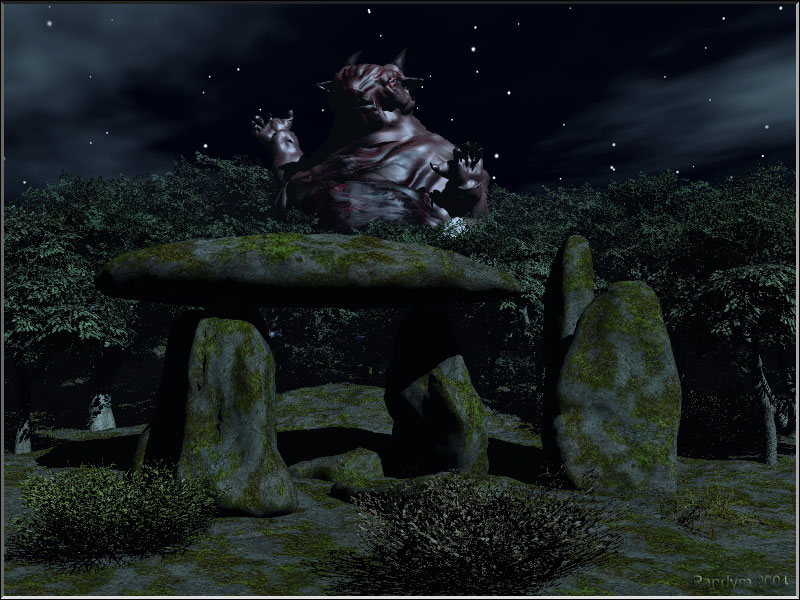Tales of the Lovecraft Mythos
by Robert M. Price (Editor)

|
Of course, they weren't. The "Cthulhu Mythos" was merely a shared fictional world, whose elements were used by many different writers over several decades. (Price prefers the term "Lovecraft Mythos," after the originator, H.P. Lovecraft.) Part of the fun of a shared world is revisiting familiar places and people (or in this case, creatures). But because of Price's main editing decision, there's relatively little that's familiar here. Most of the stories are from the early pulp days, and are often only tangentially related to the Mythos. All the stories in this collection were chosen because they feature the first mention of a particular name that eventually became part of the Mythos. The first appearances of the Eltdown Shards, the Tcho-Tcho people, Ithaqua, etc., are all here. While this might be of some interest to Lovecraft scholars, it doesn't make for great entertainment. As Price himself notes, "...perhaps the one thing the stories in the present collection illustrate over and over again is how the original name or notion that often reappears in subsequent Mythos fiction may have been quite modest in its intended scope, less spectacular in its first effect. The single flake at the center of the growing snowball, as it were." In other words, the first appearance may well have been a clunker. There are twenty stories, of widely varying quality. Authors include Clark Ashton Smith, Robert Bloch, Robert E. Howard, Henry Kuttner, August Derleth, Bertram Russell, Fritz Leiber, and Donald A. Wollheim. In tone, the stories range from true horror to adventure/sword & sorcery to science fiction. There is brief preface by Robert Bloch, and a long, scholarly introduction by the editor, where, among other things, he defends the frequently maligned August Derleth from his detractors. The title was chosen to be reminiscent of a collection from 30 years ago: August Derleth's "Tales of the Cthulhu Mythos." As it turns out, that was an unfortunate choice, because it invites a comparison...one in which the newer book suffers. Derleth's book was excellent. It featured two classics by Lovecraft himself, many fine works by the usual "Lovecraft Circle" suspects, plus choice stories by people such as Stephen King and Joanna Russ, not generally thought of as Lovecraftian writers. It would be hard for Price's "homage" to measure up, even if his editorial choices had been brilliant. Ironically, in his introduction Price criticizes Derleth for including two stories by Lovecraft himself in "Tales From the Cthulhu Mythos." Price argues that anyone who picked up the book would have already read all of Lovecraft's work, or could easily find it elsewhere if necessary. But Price himself makes a similar mistake. Because of the "first appearance" gimmick, he mixes stories that are frequently anthologized with those that are very obscure. The result is a book that is of limited appeal. The hardcore Lovecraft fan will have already read the more popular of these stories, while the rarer stories - many of which deserve their obscurity - are likely to be a turnoff to new readers. The book seems aimed at a very tiny audience: those with a certain type of academic interest in the Cthulhu Mythos. This would have been a far better book if Price had aimed a broader audience. He should have either picked stories that were all rarities from pulp magazines and fanzines, and targeted the book at diehard fans, or picked the best stories, and targeted new readers. In either case, here's hoping that next time, he chooses stories for their entertainment value, rather than their academic interest.
|